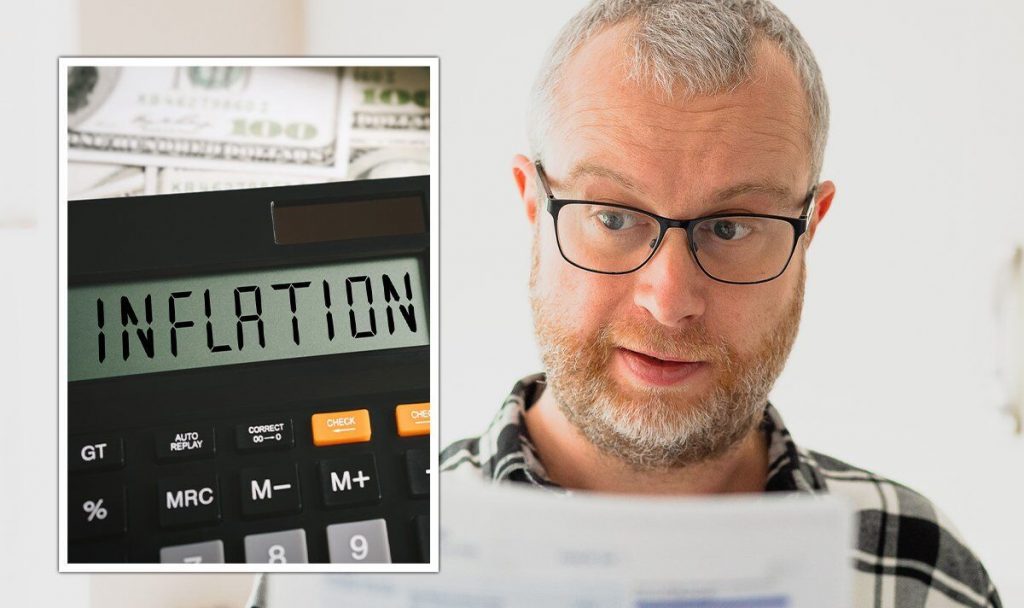
Last month, the Consumer Price Index (CPI) rate of inflation rose to a 41-year high of 11.1 percent with soaring energy prices and the war in Ukraine continuing to have a knock-on effect. In an attempt to address the soaring cost of goods and services, the Bank of England’s Monetary Policy Committee (MPC) has opted to raise the UK’s interest rates over the last couple of months. Currently, the UK’s base rate is at three percent but this is expected to increase once again by at least 50 basis points once the central bank’s MPC reconvenes tomorrow (December 15).
Earlier this week, the UK’s unemployment figures for August to October 2022 increased by 0.1 percentage points to 3.7 percent.
During the same quarter, the estimated number of vacancies in the country dropped by 65,000 to 1,187,000.
Workers have also seen their total and regular pay decrease by 2.7 percent in real terms over the last 12 months.
This drop in real wages for employees represents one of the largest falls since comparable records began.
READ MORE: Pensioners could get ‘lifeline’ payment worth up to £370 per month
Joe Nellis, a professor of global economy at Cranfield School of Management, broke down what today’s inflation figures mean for the nation.
Professor Nellis explained: “We are in a precarious position and we are going to experience a sustained fall in living standards over the next two years, the likes of which we haven’t seen in 100 years.”
Meanwhile, inflation in the United States appears to have slowed down following consistent intervention by the Federal Reserve.
On a year-to-year basis, inflation in the States rose to 7.1 percent which is a drop from the 7.7 percent reported in October.
DON’T MISS
Reacting to today’s news, Jeremy Batstone-Carr, a European strategist at Raymond James Investment Services, noted while today’s inflation rate drop will spread “Christmas cheer”, families are still left with sky-high bills to pay for.
The financial expert explained: “At 10.7 percent, this is still well above the Bank of England’s two percent inflation target, so this is just the end of the beginning for the Monetary Policy Committee.
“In October the price cap increase drove a 42.7 percent uptick in utility prices, but the now-fixed price cap has thrown water on the flames of burning energy price inflation.
“Food inflation is also moderating, while sterling’s rebound on the foreign exchanges should ensure that other imported inflationary pressures diminish too.”
READ MORE: NS&I announces December 2022 Premium Bonds prize winners
More to follow…
Despite some experts believing the UK’s inflation has peaked for the time being, many are concerned that the rate remains too high for families struggling amid the cost of living crisis.
Since October, households with average energy consumption have seen their gas and electricity costs shoot up by 27 percent.
This is even with the Government’s price guarantee in place which caps the price per unit of energy for every household with average usage.
On top of this, the likely interest rate rise tomorrow from the Bank of England will place further financial pressure on those with mortgages and debt payments.
Suren Thiru, economics director at ICAEW, outlined how the central bank’s thinking may be affected with today’s inflation drop.
He said: “November’s slowdown could be the start of a painful deceleration in inflation as slowing demand, rising interest rates and falling commodity prices weaken the headline rate, but at the cost of a protracted recession and notably higher unemployment.
“With inflationary pressures looking more broad-based, the pace of easing is likely to be slow, which implies that wage growth will continue to trail inflation for some time, providing little respite to financially-squeezed households.
“Although another large interest rate rise on Thursday is inevitable, a growing split in Monetary Policy Committee voting could point to a more moderate pace of monetary tightening as recession risks crystallise.”

 Latest Breaking News Online News Portal
Latest Breaking News Online News Portal




